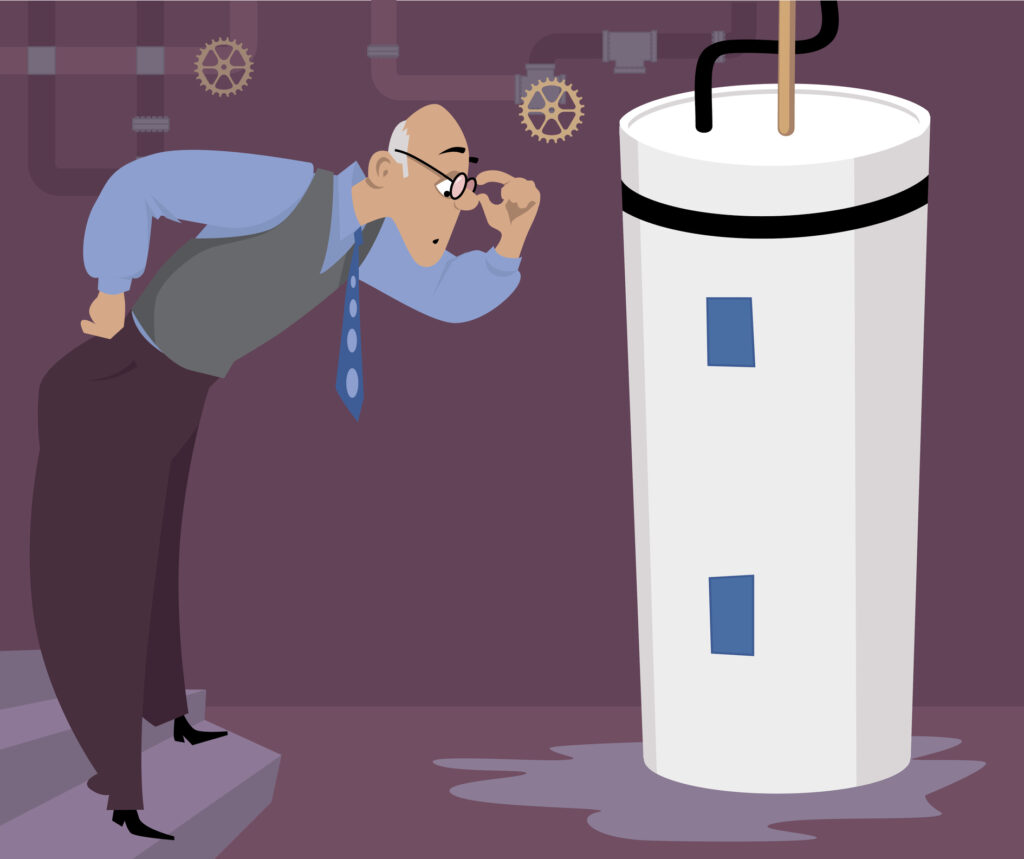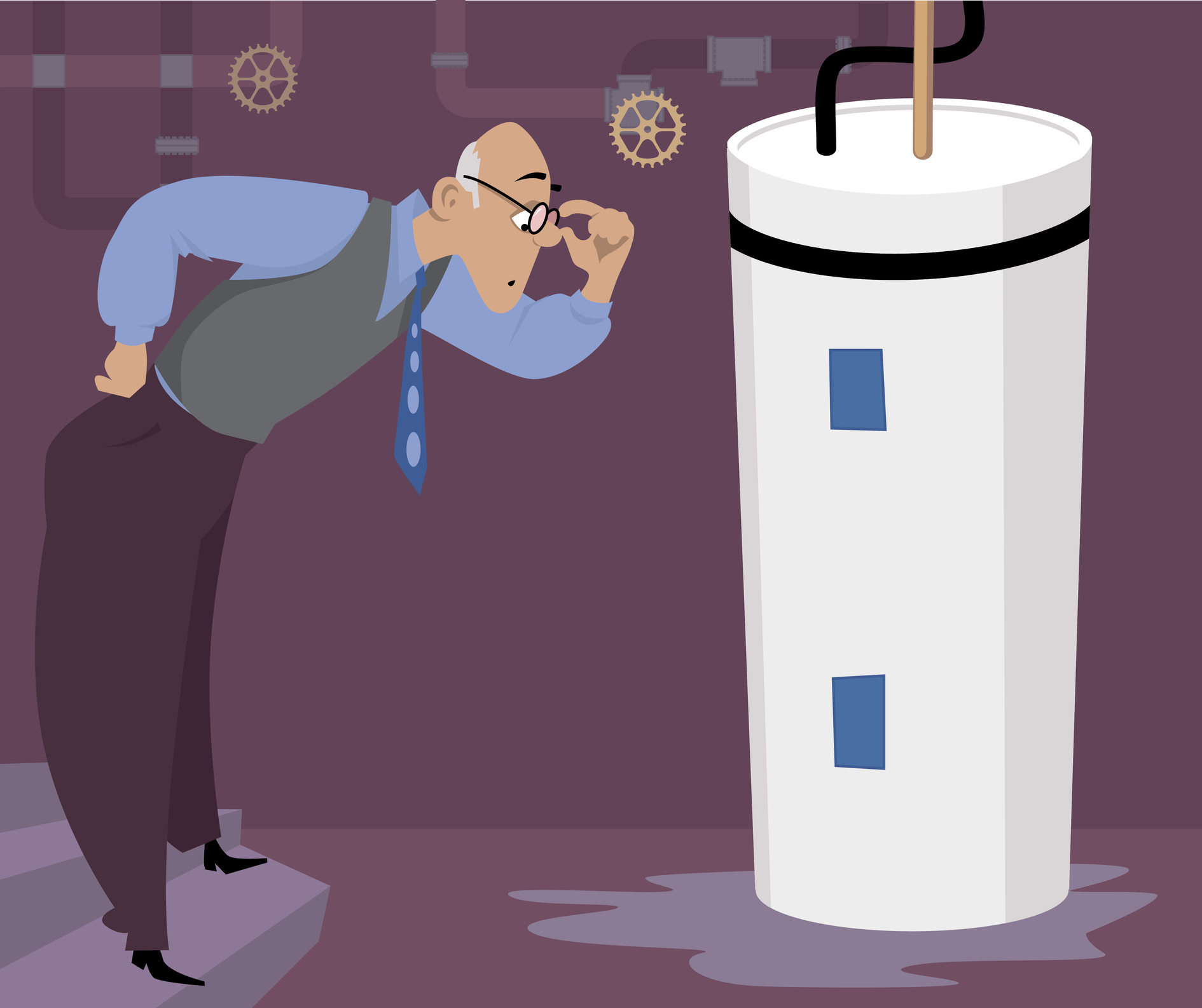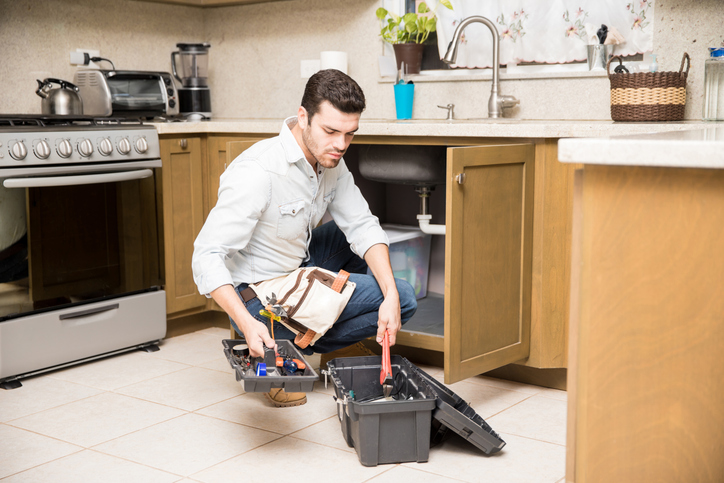Your water heater works hard day in and day out with zero downtime. It’s safe to say it’s probably one of the hardest working major appliances in your home. And if it could talk, it might be able to tell you when it’s on the fritz, needs a little TLC, or is ready to call it quits. But it can’t.
What it can do, however, is give you clues and hints that trouble is brewing. Here are 9 warning signs your water heater may be on it’s last leg.

-
Strange Noises
For the most part, a water heater should be whisper-quiet. However, if you hear banging, popping, clanking, or rumbling, there could be a build-up of sediment in the bottom of the tank. If ignored, the unit can overheat and fail.
-
Inconsistent Water Temperature
Temperature irregularities should be checked out as soon as possible as they may indicate a larger problem that could lead to system failure.
-
Low Water Pressure
Is your water pressure perfectly fine from cold-water faucets but barely a dribble from hot water faucets? This is yet another indication of sediment build-up inside the tank.
-
Discolored or Rusty Water
If your water is anything but crystal clear, it’s likely a sign that the anode rod in the water heater tank is beginning to fail. The anode rod protects the interior of the tank from corrosion by attracting sediment and corrosive elements so they corrode the rod rather than the inside of the tank.
-
Water Smells Odd
In addition to being sparkling clear, your water should also have no odor. If you get a whiff of something odd, bacteria could be growing inside the tank. You can usually get rid of bacteria by draining the tank and treating your water, but if the problem persists, you may need to replace the unit.
-
Hot Water Shortage
Does your shower start off nice and hot only to get colder by the minute? Unless you have significantly changed your hot water usage habits, lack of sufficient hot water is often a sign that the appliance is struggling to heat water effectively.
-
Leaks
Your water heater is designed to be air-tight. So if you notice water around the tank, it needs prompt attention. A leaking water heater can cause significant damage to your home so it’s crucial to check the heater and valves regularly for signs of leaks.
-
More Frequent Repairs
Once the repair bills start piling up, it may be time to consider replacement. The parts and components of an aging water heater not only start to break down more frequently, the unit starts to work harder to maintain your desired water temperature, leading to higher utility costs.
-
Higher Energy Bills
As mentioned above, the harder your water heater has to work to keep up with demand, the more it costs to operate. A new, energy-efficient water heater will pay for itself in no time.
The average lifespan of a tank-style water heater is about 8 to 12 years. If yours is approaching the 8-year mark, it may be time to consider replacement. Whether you are in the market for a new water heater or simply have questions about your current one, contact Norhio Plumbing for expert advice and the quality service you deserve.










Leave a Reply